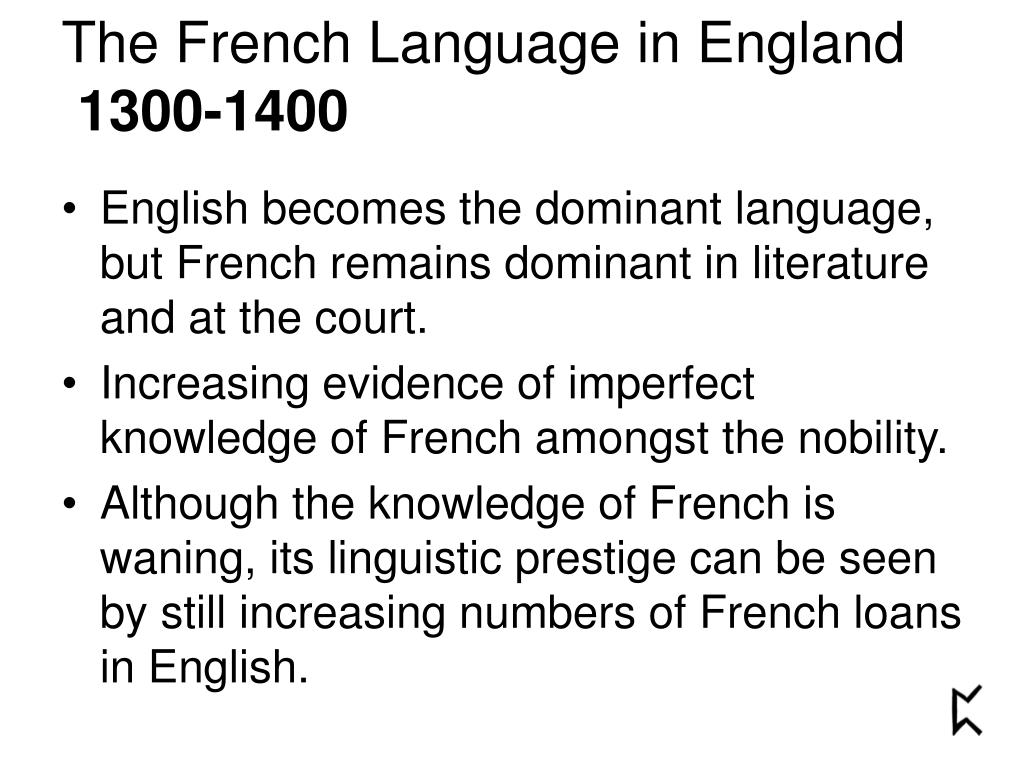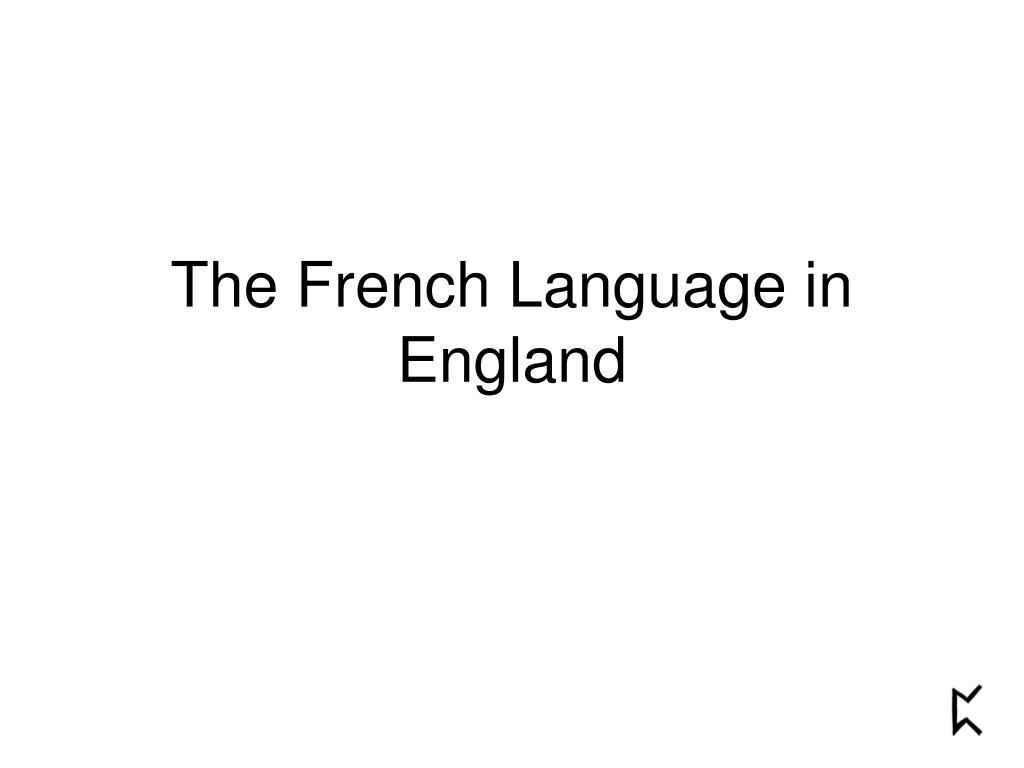When Did French Stop Being The Official Language Of England
Back in medieval England, French was the tongue of the elite, the rulers, and the courts. For over three centuries, it reigned supreme as the official language of the kingdom. Yet, like all things in history, this era of linguistic dominance eventually came to an end. But when exactly did French stop being the official language of England? This intriguing tale of language evolution and cultural shifts offers a fascinating glimpse into how societies adapt and change over time. As we explore this topic, you'll discover how English gradually reclaimed its place at the heart of the nation.
Understanding the transition from French to English as the official language involves looking at the broader context of history. The Norman Conquest of 1066 brought significant changes to England, including the introduction of French as the language of the ruling class. For centuries, this linguistic dominance persisted, influencing everything from governance to literature. Yet, as time passed, the influence of French began to wane, giving way to the resurgence of English. This shift was driven by various social, political, and cultural factors that shaped the identity of the English-speaking population.
In some respects, the decline of French as the official language of England wasn't a sudden event but a gradual process. Over time, the English language evolved, becoming more standardized and gaining prominence in everyday life. By the 14th century, English had started to reclaim its place in official capacities, thanks to figures like King Edward III, who embraced the language in court proceedings. This marked a turning point in the linguistic landscape of England, setting the stage for English to become the dominant tongue once more. So, let's delve into the details of this fascinating transition and uncover the reasons behind it.
Table of Contents
- When Did French Stop Being the Official Language of England?
- Why Was French the Official Language in the First Place?
- What Factors Led to the Decline of French?
- How Did English Reclaim Its Place?
- What Role Did Literature Play in This Shift?
- When Did French Stop Being the Official Language of England - The Key Events
- Who Were the Key Figures in This Linguistic Transition?
- What Can We Learn from This Historical Shift?
When Did French Stop Being the Official Language of England?
French officially ceased to be the language of governance in England by the early 15th century, though its influence lingered for some time afterward. The transition wasn't abrupt but rather a gradual process that unfolded over several decades. By the reign of King Henry IV in the early 1400s, English had firmly established itself as the primary language of administration and law. This change was marked by the adoption of English in official documents, court proceedings, and even parliamentary speeches.
For instance, the famous "Statute of Pleading" in 1362 was a significant milestone. This legislation mandated the use of English in courtrooms, signaling a clear shift away from French. While French continued to be spoken by the nobility and in certain elite circles, its role as the official language of England had effectively ended by this point. So, to answer the question more or less directly, French stopped being the official language sometime around the late 14th century, though its cultural and linguistic legacy persisted for years to come.
Why Was French the Official Language in the First Place?
French became the official language of England following the Norman Conquest in 1066. When William the Conqueror ascended the throne, he brought with him a new ruling class that spoke Norman French. This elite group imposed their language on the conquered population, establishing French as the medium of communication in courts, government, and high society. The native English-speaking population, however, continued to use their own tongue in everyday life, creating a linguistic divide that lasted for centuries.
French was more or less entrenched as the official language due to its association with power and prestige. The ruling class viewed it as a symbol of sophistication and refinement, while English was often seen as the language of the common folk. This perception helped solidify French's status as the preferred tongue for governance and administration, making it the default choice for official matters. Yet, over time, this dynamic began to shift, paving the way for English to regain its prominence.
What Factors Led to the Decline of French?
Several factors contributed to the decline of French as the official language of England. First and foremost, the gradual assimilation of the Norman aristocracy into English society played a significant role. Over the years, the descendants of the original Norman conquerors began to identify more with their English subjects, adopting the local language and customs. This cultural blending weakened the exclusive use of French in official capacities.
Another important factor was the rise of English nationalism during the 14th century. As England became more self-aware as a distinct nation, there was a growing desire to assert its identity through language. This sentiment was reflected in the increasing use of English in literature, governance, and public life. Additionally, the Hundred Years' War between England and France further diminished the appeal of French, as it came to be associated with a foreign enemy. These developments collectively contributed to the decline of French as the official language of England.
How Did English Reclaim Its Place?
English reclaimed its place as the dominant language in England through a combination of social, political, and cultural factors. The rise of influential figures like Geoffrey Chaucer, who wrote in English, helped elevate the language's status in literary circles. Chaucer's works, such as "The Canterbury Tales," demonstrated that English could be a sophisticated and versatile medium for artistic expression, challenging the long-held belief that French was superior.
Politically, the adoption of English in official documents and court proceedings was a crucial step in this linguistic transition. Kings like Edward III and Henry IV actively promoted the use of English in governance, recognizing its potential to unify the nation and foster a shared identity. This shift was reinforced by the growing importance of the English-speaking population, whose voices increasingly shaped the political and social landscape of the time. As a result, English gradually became the language of choice for both the ruling class and the common people.
What Role Did Literature Play in This Shift?
Literature played a vital role in the resurgence of English as the official language of England. Writers like Chaucer, Langland, and Gower produced works that celebrated the beauty and versatility of the English language, helping to dispel the notion that it was inferior to French. Their efforts laid the groundwork for a rich literary tradition that continues to influence English-speaking cultures today.
Moreover, the translation of important texts into English, such as the Bible, made them more accessible to a wider audience. This democratization of knowledge contributed to the growing popularity of English, as people from all walks of life could now engage with these influential works in their native tongue. In this way, literature served as a powerful tool for promoting the use of English and cementing its place in the cultural and intellectual life of the nation.
When Did French Stop Being the Official Language of England - The Key Events
To better understand when French stopped being the official language of England, it's helpful to examine some key events that marked this transition. The Statute of Pleading in 1362, as mentioned earlier, was a pivotal moment that mandated the use of English in courtrooms. This legislation signaled a clear shift away from French and towards English as the language of governance.
Another significant event was the coronation of King Henry IV in 1399, during which he delivered his speech in English. This marked the first time an English monarch had done so, symbolizing the growing importance of English in official capacities. Additionally, the translation of the Bible into English in the late 14th century further solidified the language's place in the cultural and religious life of the nation. These events collectively contributed to the decline of French as the official language of England and the rise of English as its successor.
Who Were the Key Figures in This Linguistic Transition?
Several key figures played important roles in the transition from French to English as the official language of England. King Edward III, who reigned from 1327 to 1377, was one of the first monarchs to promote the use of English in governance. His decision to adopt English in official documents and court proceedings set a precedent for future rulers.
King Henry IV, who ascended the throne in 1399, continued this trend by delivering his coronation speech in English, further cementing the language's place in official capacities. Geoffrey Chaucer, the celebrated poet and author, also contributed to this linguistic shift by producing works that celebrated the beauty and versatility of the English language. Together, these figures helped pave the way for English to reclaim its position as the dominant tongue in England.
What Can We Learn from This Historical Shift?
The transition from French to English as the official language of England offers valuable insights into how societies adapt and evolve over time. It highlights the importance of cultural identity and the role language plays in shaping a nation's sense of self. This historical shift also demonstrates the power of literature and influential figures in promoting linguistic change and fostering a shared identity among diverse populations.
Ultimately, the story of when French stopped being the official language of England is one of resilience and adaptation. It shows how a nation can reclaim its linguistic heritage while embracing new influences, creating a rich tapestry of culture and tradition that continues to evolve to this day. This lesson remains relevant as societies around the world navigate their own linguistic and cultural transitions in an increasingly interconnected global landscape.
So, there you have it. The tale of when French stopped being the official language of England is more than just a historical curiosity—it's a reminder of the dynamic nature of language and culture, and how they shape the identity of a nation over time.

French was the official language of England for about 300 years, from

PPT - The French Language in England PowerPoint Presentation, free

PPT - The French Language in England PowerPoint Presentation, free